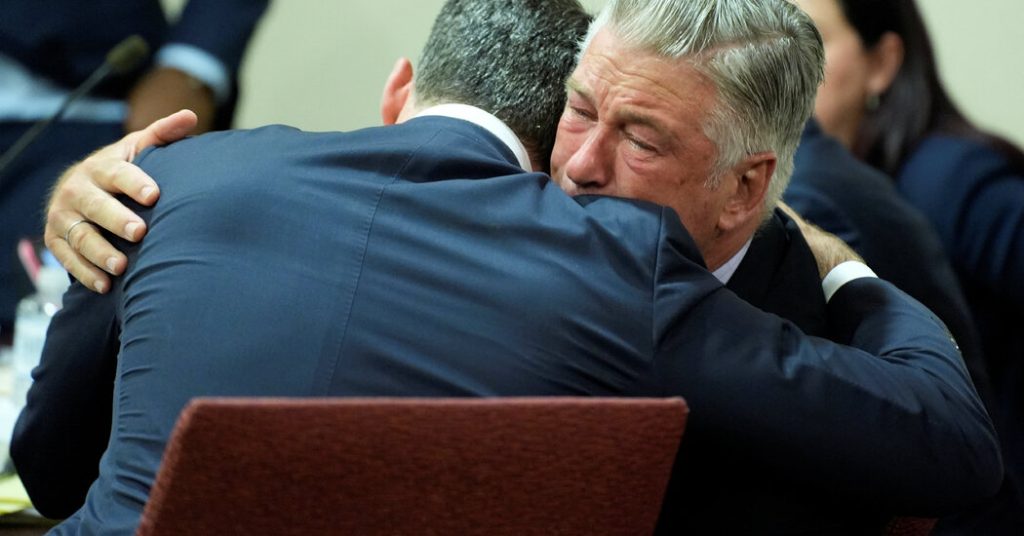Alec Baldwin’s lawsuit against New Mexico prosecutors and law enforcement officials paints a picture of a “malicious prosecution” driven by personal agendas and ambitions rather than a genuine pursuit of justice in the tragic death of cinematographer Halyna Hutchins. The suit, filed in the First Judicial District Court of New Mexico, alleges a series of violations of Baldwin’s constitutional rights, including the withholding of evidence, the manipulation of facts to “manufacture” a case, and the exploitation of the case for personal gain. Baldwin’s lawyers contend that the prosecution’s actions inflicted significant emotional distress and financial hardship on their client, and they seek monetary damages to compensate for these losses.
The lawsuit stems from the involuntary manslaughter case against Baldwin, which was dramatically dismissed in July 2024. Judge Mary Marlowe Sommer found that the prosecution had withheld evidence from the defense, a critical error that led her to dismiss the case with prejudice, preventing any possibility of retrial. This dismissal followed a convoluted legal process that saw the charges against Baldwin downgraded after an initial misapplication of the law, highlighting the perceived disorganization and questionable tactics employed by the prosecution.
Baldwin’s legal team points to several specific instances that underpin their claims of malicious prosecution. They cite the initial involvement of special prosecutor Andrea Reeb, who later resigned from the case following allegations of a conflict of interest due to her simultaneous role as a state legislator. An email from Reeb suggesting that the high-profile case could benefit her political campaign fueled suspicions about the prosecution’s motives. The lawsuit further highlights media reports alleging that prosecutors sought to “humble” Baldwin, suggesting a personal vendetta rather than an impartial pursuit of justice.
The prosecution, led initially by District Attorney Mary Carmack-Altwies and later by special prosecutor Kari T. Morrissey, has consistently maintained that the charges against Baldwin were justified. They argued that Baldwin’s alleged reckless handling of the firearm on the set directly led to Ms. Hutchins’s death. Ms. Morrissey has emphasized the forensic evidence, claiming it contradicts Baldwin’s assertion that he did not pull the trigger. She has also argued that Baldwin, as a gun handler, bore the responsibility for ensuring the gun contained only inert ammunition.
The lawsuit also challenges the prosecution’s interpretation of firearms safety protocols on film sets. Baldwin’s legal team, supported by the actors’ union SAG-AFTRA, contends that firearms professionals, not actors, are responsible for checking guns. This disagreement underscores a fundamental difference in understanding regarding on-set responsibilities and highlights the complexities surrounding firearms safety in the film industry.
The dismissal of the criminal case against Baldwin does not mark the end of his legal battles. He continues to face civil lawsuits from Ms. Hutchins’s family and members of the “Rust” film crew. These lawsuits will likely delve into issues of negligence and liability, further exploring the circumstances surrounding the tragic accident and its far-reaching consequences. The outcome of these civil cases will likely have significant implications for the film industry, particularly regarding on-set safety protocols and the responsibilities of actors, producers, and firearms professionals.
The Baldwin lawsuit serves as a stark reminder of the potential for the criminal justice system to be misused, particularly when high-profile individuals are involved. The allegations of prosecutorial misconduct raise serious questions about the integrity of the investigation and the fairness of the process. The ultimate outcome of this lawsuit will not only determine whether Baldwin receives compensation for the alleged damages he suffered but could also influence future discussions about prosecutorial ethics and the need for greater accountability within the criminal justice system.


